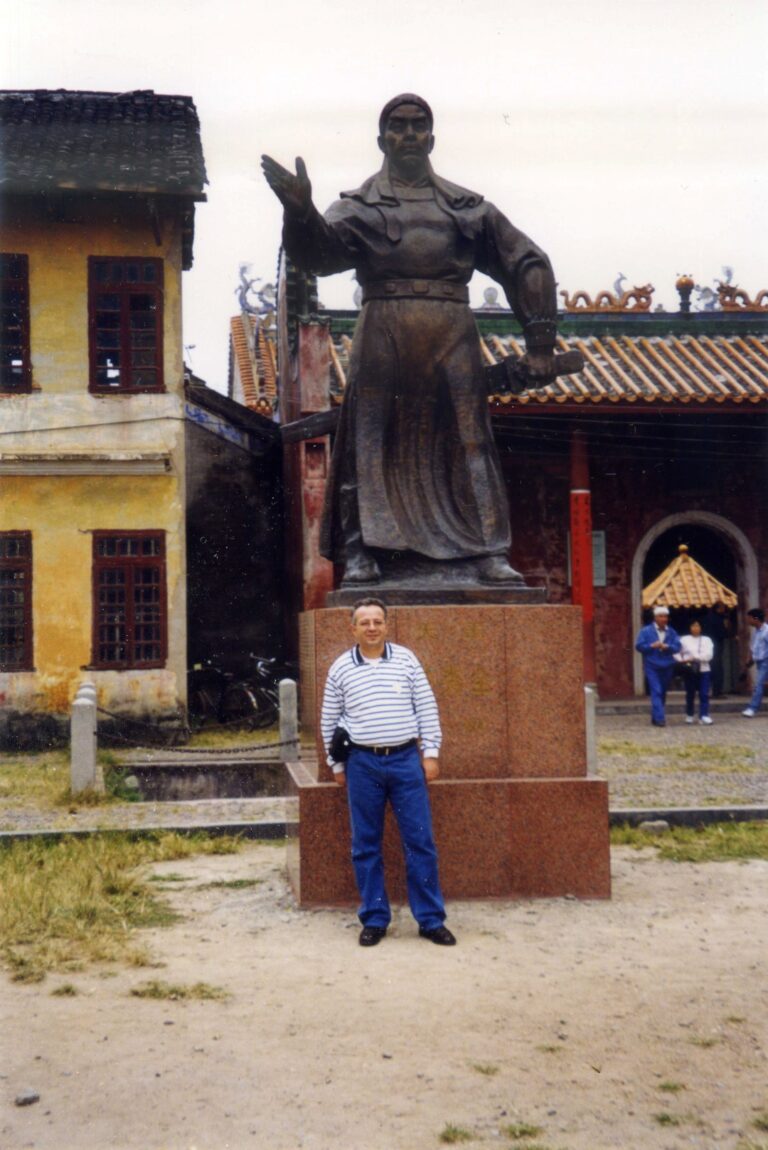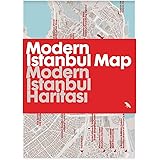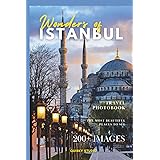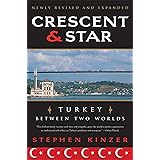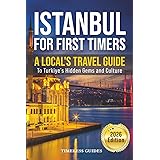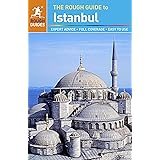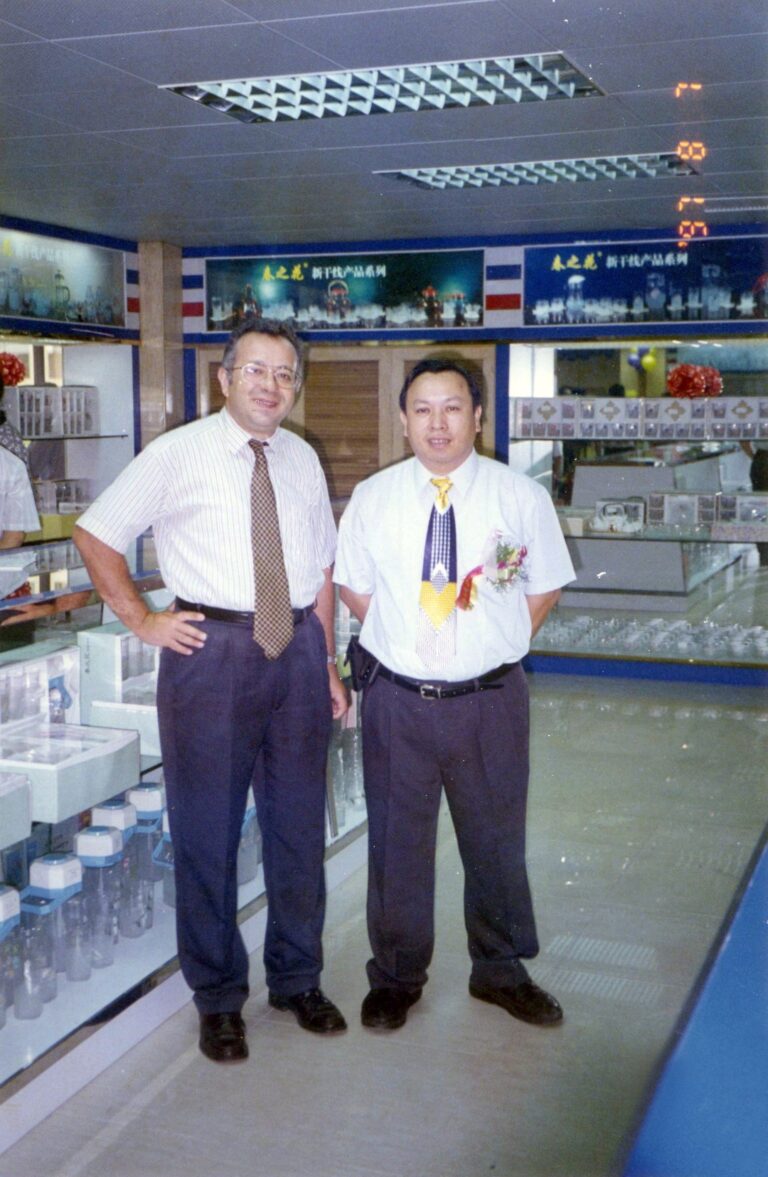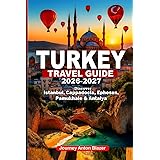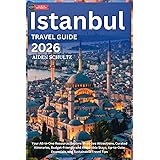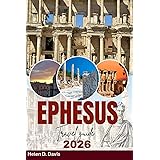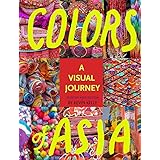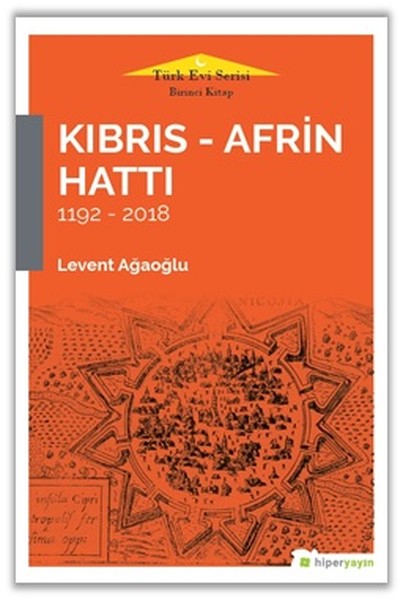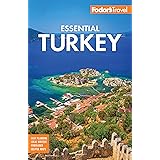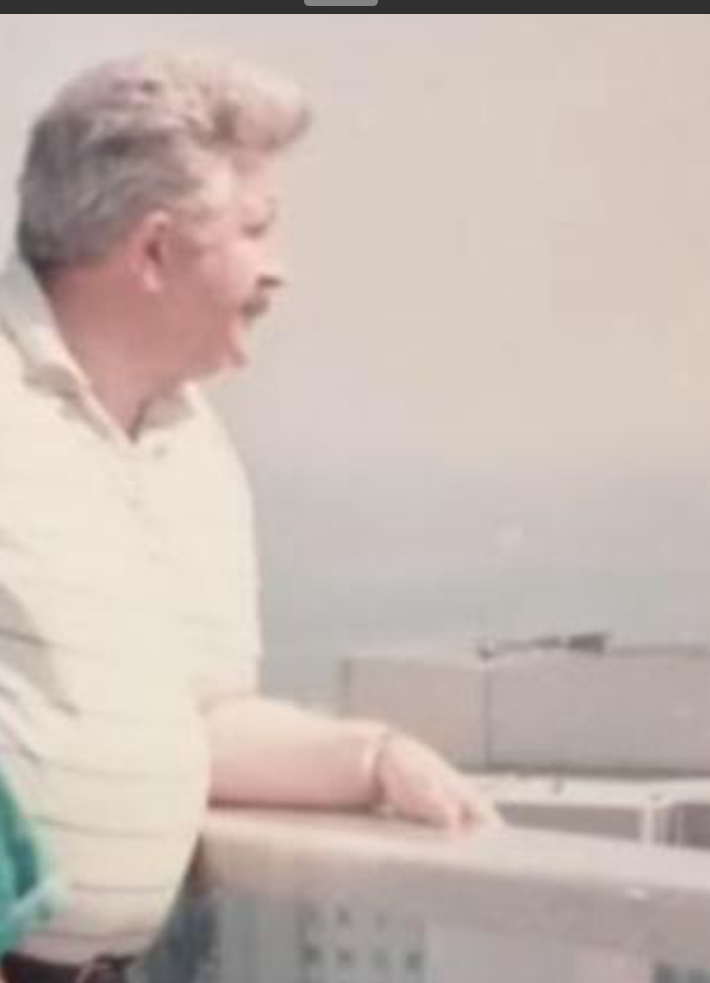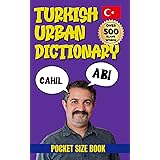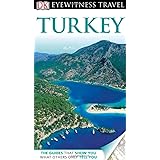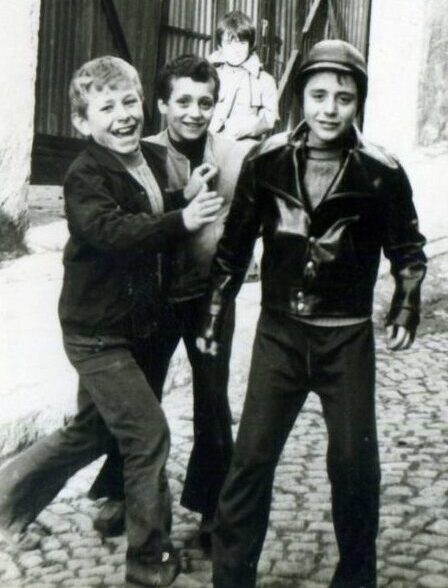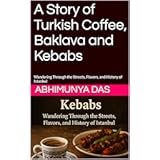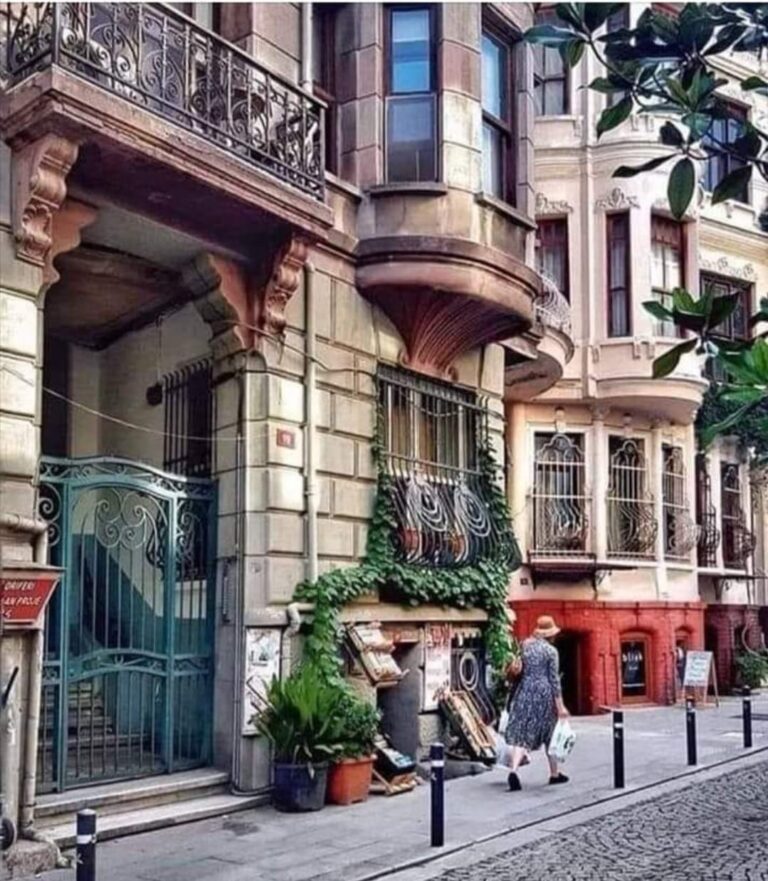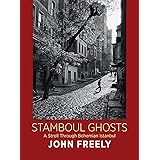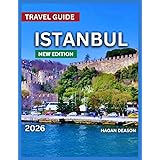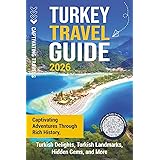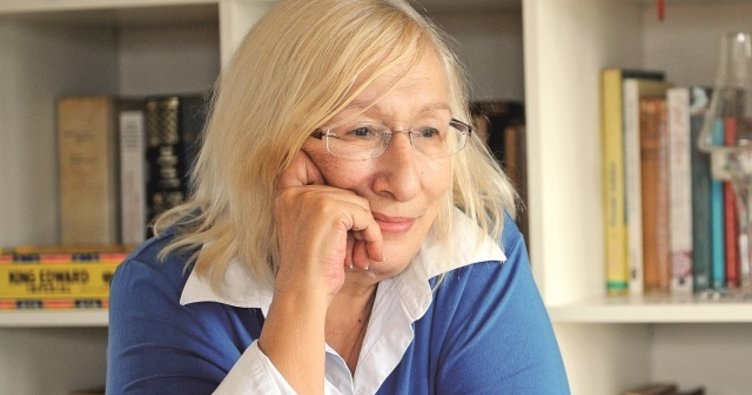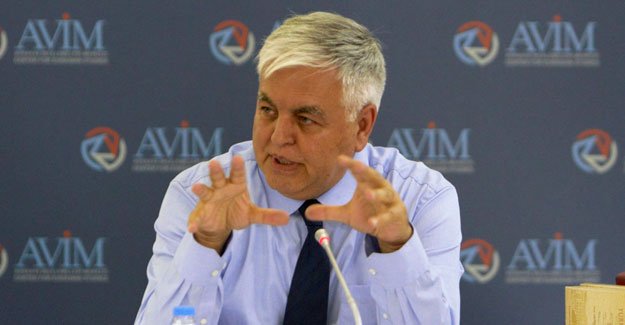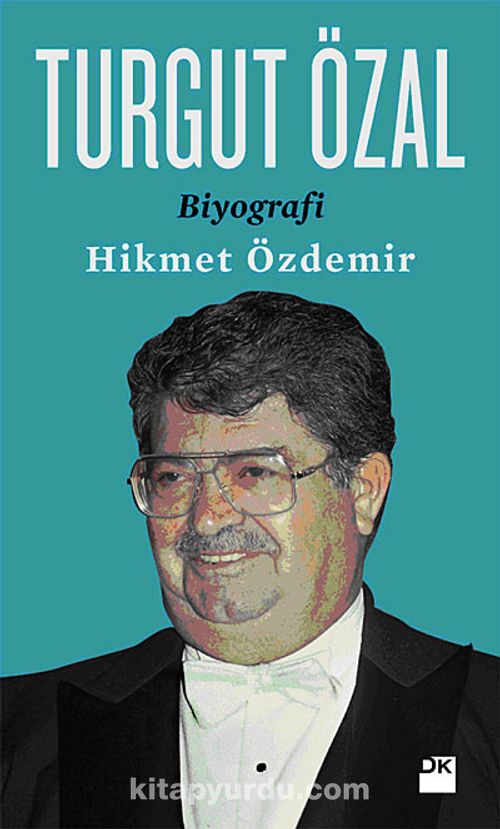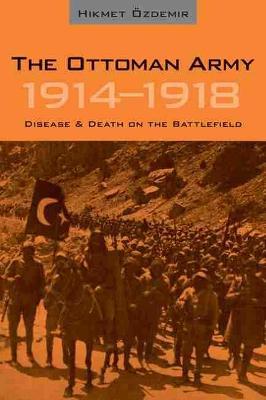Xiaolan Glassware Town, Guangdong China
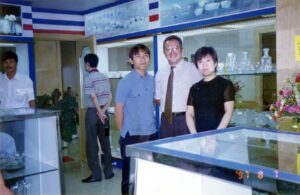
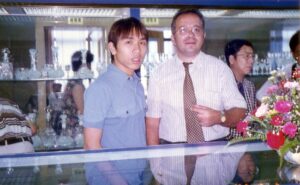
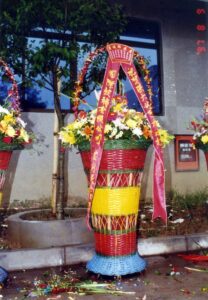
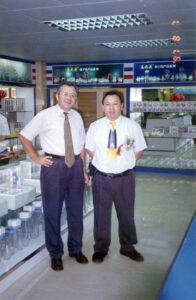
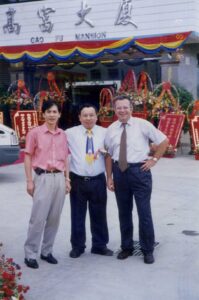
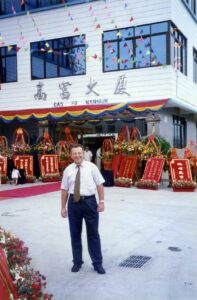
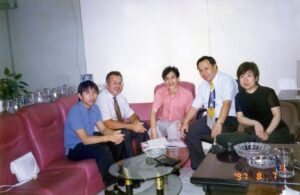
Blue Guide Istanbul
$9.99 (as of 06/02/2026 22:15 GMT +03:00 - More infoProduct prices and availability are accurate as of the date/time indicated and are subject to change. Any price and availability information displayed on [relevant Amazon Site(s), as applicable] at the time of purchase will apply to the purchase of this product.)Istanbul & Northwest Turkey Travel Reference Map WP
$9.89 (as of 06/02/2026 22:15 GMT +03:00 - More infoProduct prices and availability are accurate as of the date/time indicated and are subject to change. Any price and availability information displayed on [relevant Amazon Site(s), as applicable] at the time of purchase will apply to the purchase of this product.)TURKEY TRAVEL GUIDE 2026-2027: Discover Istanbul, Cappadocia, Ephesus, Pamukhale & Antalya: Local Secrets, Expert Tips, Hidden Gems, Cultural Insights, and Smart Itineraries
$16.99 (as of 06/02/2026 22:15 GMT +03:00 - More infoProduct prices and availability are accurate as of the date/time indicated and are subject to change. Any price and availability information displayed on [relevant Amazon Site(s), as applicable] at the time of purchase will apply to the purchase of this product.)Istanbul Travel Guide 2025/2026: Sultanahmet, Beyoğlu: Shopping and Nightlife, Kadıköy, Balat and Fener, Markets and Shopping,Hagia Sophia,Must-See ... Galata Tower. (Best Travel Guides 2025)
$11.99 (as of 06/02/2026 22:15 GMT +03:00 - More infoProduct prices and availability are accurate as of the date/time indicated and are subject to change. Any price and availability information displayed on [relevant Amazon Site(s), as applicable] at the time of purchase will apply to the purchase of this product.)Modern Istanbul Map / Modern Istanbul Haritasi: Guide to Modern Architecture in Istanbul, Turkey (Blue Crow Media Architecture Maps)
$13.00 (as of 06/02/2026 22:15 GMT +03:00 - More infoProduct prices and availability are accurate as of the date/time indicated and are subject to change. Any price and availability information displayed on [relevant Amazon Site(s), as applicable] at the time of purchase will apply to the purchase of this product.)Rick Steves Istanbul: With Ephesus & Cappadocia
$3.38 (as of 06/02/2026 22:15 GMT +03:00 - More infoProduct prices and availability are accurate as of the date/time indicated and are subject to change. Any price and availability information displayed on [relevant Amazon Site(s), as applicable] at the time of purchase will apply to the purchase of this product.)Istanbul For First Timers: A Local's Travel Guide To Turkiye's Hidden Gems and Culture
$15.99 (as of 06/02/2026 22:15 GMT +03:00 - More infoProduct prices and availability are accurate as of the date/time indicated and are subject to change. Any price and availability information displayed on [relevant Amazon Site(s), as applicable] at the time of purchase will apply to the purchase of this product.)The History of Istanbul: From Byzantion to Modern Times (History of Turkey Books)
$15.99 (as of 06/02/2026 22:15 GMT +03:00 - More infoProduct prices and availability are accurate as of the date/time indicated and are subject to change. Any price and availability information displayed on [relevant Amazon Site(s), as applicable] at the time of purchase will apply to the purchase of this product.)Pocket Rough Guide Istanbul: Travel Guide with eBook
$10.11 (as of 06/02/2026 22:15 GMT +03:00 - More infoProduct prices and availability are accurate as of the date/time indicated and are subject to change. Any price and availability information displayed on [relevant Amazon Site(s), as applicable] at the time of purchase will apply to the purchase of this product.)Istanbul Travel Guide 2026: Your All-in-One Resource: Explore Must-See Attractions, Curated Itineraries, Budget-Friendly and Accessible Stays, Up-to-Date Essentials, and Sustainable Travel Tips
$15.99 (as of 06/02/2026 22:15 GMT +03:00 - More infoProduct prices and availability are accurate as of the date/time indicated and are subject to change. Any price and availability information displayed on [relevant Amazon Site(s), as applicable] at the time of purchase will apply to the purchase of this product.)Türkiye (Turkey) Map (National Geographic Adventure Map, 3018)
$11.87 (as of 06/02/2026 22:20 GMT +03:00 - More infoProduct prices and availability are accurate as of the date/time indicated and are subject to change. Any price and availability information displayed on [relevant Amazon Site(s), as applicable] at the time of purchase will apply to the purchase of this product.)Istanbul For First Timers: A Local's Travel Guide To Turkiye's Hidden Gems and Culture
$15.99 (as of 06/02/2026 22:20 GMT +03:00 - More infoProduct prices and availability are accurate as of the date/time indicated and are subject to change. Any price and availability information displayed on [relevant Amazon Site(s), as applicable] at the time of purchase will apply to the purchase of this product.)Fodor's Essential Turkey (Full-color Travel Guide)
$3.38 (as of 06/02/2026 22:20 GMT +03:00 - More infoProduct prices and availability are accurate as of the date/time indicated and are subject to change. Any price and availability information displayed on [relevant Amazon Site(s), as applicable] at the time of purchase will apply to the purchase of this product.)DK Top 10 Istanbul (Pocket Travel Guide)
$2.80 (as of 06/02/2026 22:20 GMT +03:00 - More infoProduct prices and availability are accurate as of the date/time indicated and are subject to change. Any price and availability information displayed on [relevant Amazon Site(s), as applicable] at the time of purchase will apply to the purchase of this product.)EPHESUS TRAVEL GUIDE 2026: A Comprehensive Journey Through Ephesus: Monuments, History, and Culture
$12.99 (as of 06/02/2026 22:20 GMT +03:00 - More infoProduct prices and availability are accurate as of the date/time indicated and are subject to change. Any price and availability information displayed on [relevant Amazon Site(s), as applicable] at the time of purchase will apply to the purchase of this product.)Lonely Planet Turkey (Travel Guide)
$2.50 (as of 06/02/2026 22:20 GMT +03:00 - More infoProduct prices and availability are accurate as of the date/time indicated and are subject to change. Any price and availability information displayed on [relevant Amazon Site(s), as applicable] at the time of purchase will apply to the purchase of this product.)A Guide to Biblical Sites in Greece and Turkey
$15.83 (as of 06/02/2026 22:20 GMT +03:00 - More infoProduct prices and availability are accurate as of the date/time indicated and are subject to change. Any price and availability information displayed on [relevant Amazon Site(s), as applicable] at the time of purchase will apply to the purchase of this product.)Colors of Asia: A Visual Journey
$34.00 (as of 06/02/2026 22:20 GMT +03:00 - More infoProduct prices and availability are accurate as of the date/time indicated and are subject to change. Any price and availability information displayed on [relevant Amazon Site(s), as applicable] at the time of purchase will apply to the purchase of this product.)Crescent and Star: Turkey Between Two Worlds
$6.49 (as of 06/02/2026 22:20 GMT +03:00 - More infoProduct prices and availability are accurate as of the date/time indicated and are subject to change. Any price and availability information displayed on [relevant Amazon Site(s), as applicable] at the time of purchase will apply to the purchase of this product.)Istanbul, City map 1:10.000, City Pocket map + The Big Five
$12.13 (as of 06/02/2026 22:20 GMT +03:00 - More infoProduct prices and availability are accurate as of the date/time indicated and are subject to change. Any price and availability information displayed on [relevant Amazon Site(s), as applicable] at the time of purchase will apply to the purchase of this product.)Cyprus on the Crossroads.
Ardan Zentürk – 1192 Cyprus-Afrin Line. Coming to 2018. What is this line? Let me learn about it first. I have a similar feeling too. Please.
Levent Ağaoğlu – Now, sir, 1192 is the date of the Crusaders’ departure to Cyprus. In fact, a new century began on January 20. The century that started with our arrival in Afrin is the century of Afrasia. African-Asian.
Ardan Zentürk – You say Afrasia in the book too. You don’t say Eurasia. Africa-Asia
Levent Ağaoğlu – Yes, because we created this issue together with our mutual friend Ahmet Kot Bey. Asia is Greater Asia , and Europe is already in that huge continent, Greater Asia. Europe has isolated itself as a separate civilization. It has drawn its borders, closed it. We also say; There is no such thing, it is the great Asia that exists as a continent. And it is in transit with Africa.
Ardan Zentürk – And you say that Cyprus has always been a seal.
Levent Ağaoğlu – There is Asia Minor in the north of Cyprus , there is Greater Asia in the east . To the south is Africa. What is Cyprus, what is the Mediterranean ? Mediterranean means the middle of the world.
Ardan Zentürk – Now it is an area where cultures are blended.
Levent Ağaoğlu – Exactly. And the center of this Mediterranean is also the center of the middle of the world, the Eastern Mediterranean, namely Cyprus .

Ardan Zentürk – No matter what we’ve done since 1974, we couldn’t help them.
Levent Ağaoğlu – Exactly because Westerners and Americans have a say. I heard it from my teacher Hasan Köni. “Might is right”. Power is right. If you are strong, you are right. I will give an example; The island of Cyprus was leased to England by us in 1878 . Hong Kong in 1898part of the island of Kowloon or the New Territories area was leased to England by the Chinese Empire. A century later, on July 2 (I stayed in Hong Kong for 4.5 years) in 1997, England handed over their rightful field to China. Unfortunately, we do not know this fact in the Turkish public, we are not told about it. England did not just hand over the area it rented, it also handed over the area that was its own. Negotiations were held for 13 years between 1984-97. What the People’s Republic of China said, “Might is Right,” said, “I am strong, I will take my right.”
Now let’s go back to Cyprus. We rented Cyprus in 1878 . And in 1914 , England said, I occupied this place. Cyprus left us in the 1923 Treaty of Lausanne . Now this is very significant, very important.
Ardan Zentürk – Now we got it back in 1974 . I will come to Afrin as well. A subject that I have been working on in this book of yours is the Added War. In other words, you attach great importance to the Added War, which Atatürk waged with great success on the Afrin Azez Line.
Levent Ağaoğlu – Atatürk started Kuvay-ı Milliye in Katma . Launched at Added Station. The idea of Kuvay-ı Milliye came to Atatürk’s mind in Afrin. We live in such an interesting period that; Cyprus and Afrin have great relations. That war started in Afrin. The National Forces understanding of the War of Independence was formed in Atatürk’s mind there.
Ardan Zentürk – One of our historians sent me a book and one of the organizations of the first Kuvay-ı Milliye was established in Al Bab. Interesting.
Levent Ağaoğlu – El Bab also means Greater Asia, that is, BAB, not BOP. It is the gateway to Greater Asia. Atatürk, on September 1, 1922, this is very important, he gives his ingenious order that we all know. “Your first target is the Mediterranean. Further!”.What is meant, proceed from Afyon to Izmir and pour the enemy into the sea. That sea is not the sea Aegean, our labels with the words Aegean need to change. Mediterranean is a Turkish word. such as Mediterranean-sea, Black-sea, Red-sea; white, black, red, these are all words that have deep meanings in Turkish culture. Aegean is not a Turkish word, it is the ancient Greek understanding and terminology. The first order given to us by our leader Atatürk, the first target, is the Mediterranean. The year is 1922. Now we come to 2018, we are talking about Cyprus again, we are talking about the Mediterranean. How was Atatürk’s first goal achieved? Hatay , Cyprus, Afrin where all of these are in the Mediterranean.
Ardan Zentürk – There is a lot of information about Mustafa Kemal’s Cyprus studies in this book, which you now attach great importance to Cyprus. There is no need to explain Hatay anyway. Tengir Şengir, the Minister of Foreign Affairs of the time, has a word for the French: “For now, we leave Afrin to you. But one day the children of this country will take it.” said. For some reason, we do not write this in the history books. So this is a line.
Levent Ağaoğlu –.Ağaoğlu – At the same time, that line is what line, the Mediterranean-New Mediterranean line. Where is the new Mediterranean , have we ever asked ourselves this question? ” Pacific” . Here Cyprus pretends to signal, that Silk Road‘Stop. Let’s do this kind of thing. The West has based its whole understanding on mythologies. Pegasus says, all brands are mythological things. Let’s write our own history, make our labels. On the Silk Road line, Afrin, that is, the Pacific Sea, is our way to reach the Pacific at one end of Asia. Cyprus is his guarantee. Cyprus is with us. It is the way out to the Pacific. Why the Mediterranean is the “New Mediterranean”, let me explain it very briefly. Because in the Mediterranean, trade has been carried out between the ports, where interactions have taken place for all those millennia. The same trades, the same industries, the same interactions are now taking place between Japan’s Osaka Port, Tokyo Port, China’s ports, Taiwan’s and Thailand’s ports. There is a great economic dynamism there. It is being re-established in the Old Mediterranean and the New Mediterranean. We Turks, as Nazım Hikmet says in his poem;We came “galloping from Far Asia”, Far Asia. “Longing into the Mediterranean like a mare’s head” is what Atatürk meant as his first goal. He says that the mare’s head, that is, the Mediterranean borders of the Anatolian peninsula, those sea borders, will all belong to us, there will not be a patch in it, there will be no part to be given to the enemy.
Ardan Zentürk – When you look at the Treaty of Sèvres, there is no such thing as Turkey.
Levent Ağaoğlu – He is the one Atatürk did not accept. Let’s know this, so we will not talk about “peace at home, peace in the world”, we will talk about the first goal. What is the first target? Atatürk’s ingenious strategic foresight, we will know. This is a prediction that covers the next centuries.
Ardan Zentürk – Enes Demir also has studies on the Cyprus-Afrin line. A very supported work, I recommend, get in touch with him as well. A young historian. It’s very enjoyable.
Levent Ağaoğlu – I know Enes Bey, his book was published by the same publishing house. Very interesting.
Ardan Zentürk – Civil researchers like you started to emerge; Is this the starting point of the tutelage period we lived between 1946 and 2016?
Levent Ağaoğlu – So I call that period, there is a replica of it in our history. 1946-2016 was a period of arrest. What period of arrest? It was a period like Gaza. It is a period like Gaza detention, let’s know that. Bilge TonyukukWe’ll go to then. To our own history. We will not only talk about the Ottoman Empire, but also about Göktürk. What’s going on in Göktürk A struggle takes place in that seventy-year period in 646-716. Look at the result of that struggle, in the 62-line first line of the Wise Tonyukuk Inscription, Tonyukuk says; “We used to live in China” line 1 and line 62 “Turkish people live happily now”. That struggle is told in 62 lines. And there, Bilge Tonyukuk, who was not written in the inscription but was in the Chinese records, said to Bilge Kagan, “Our strength is one percent against China, we should know this and act in confidence.” Us Against America has, he has, there are going to leave now. Against us was a China where we had 1% power. With the wisdom of wise Tonyukuk, we came out free.
Source: Moderator Night Program with Ardan Zentürk, 22 May 2018, Channel 24
The Rough Guide to Istanbul
$4.13 (as of 06/02/2026 22:15 GMT +03:00 - More infoProduct prices and availability are accurate as of the date/time indicated and are subject to change. Any price and availability information displayed on [relevant Amazon Site(s), as applicable] at the time of purchase will apply to the purchase of this product.)Crescent and Star: Turkey Between Two Worlds
$6.49 (as of 06/02/2026 22:15 GMT +03:00 - More infoProduct prices and availability are accurate as of the date/time indicated and are subject to change. Any price and availability information displayed on [relevant Amazon Site(s), as applicable] at the time of purchase will apply to the purchase of this product.)The Mini Rough Guide to Istanbul and the Aegean Coast: Travel Guide with eBook
$9.27 (as of 06/02/2026 22:15 GMT +03:00 - More infoProduct prices and availability are accurate as of the date/time indicated and are subject to change. Any price and availability information displayed on [relevant Amazon Site(s), as applicable] at the time of purchase will apply to the purchase of this product.)The Turkish Cookbook
$42.79 (as of 06/02/2026 22:15 GMT +03:00 - More infoProduct prices and availability are accurate as of the date/time indicated and are subject to change. Any price and availability information displayed on [relevant Amazon Site(s), as applicable] at the time of purchase will apply to the purchase of this product.)Lonely Planet Istanbul (Travel Guide)
$5.58 (as of 06/02/2026 22:15 GMT +03:00 - More infoProduct prices and availability are accurate as of the date/time indicated and are subject to change. Any price and availability information displayed on [relevant Amazon Site(s), as applicable] at the time of purchase will apply to the purchase of this product.)Istanbul Travel Guide 2025/2026: Sultanahmet, Beyoğlu: Shopping and Nightlife, Kadıköy, Balat and Fener, Markets and Shopping,Hagia Sophia,Must-See ... Galata Tower. (Best Travel Guides 2025)
$11.99 (as of 06/02/2026 22:15 GMT +03:00 - More infoProduct prices and availability are accurate as of the date/time indicated and are subject to change. Any price and availability information displayed on [relevant Amazon Site(s), as applicable] at the time of purchase will apply to the purchase of this product.)Laminated Istanbul Map by Borch (English) (English, Spanish, French, Italian and German Edition)
$5.96 (as of 06/02/2026 22:15 GMT +03:00 - More infoProduct prices and availability are accurate as of the date/time indicated and are subject to change. Any price and availability information displayed on [relevant Amazon Site(s), as applicable] at the time of purchase will apply to the purchase of this product.)The History of Istanbul: From Byzantion to Modern Times (History of Turkey Books)
$15.99 (as of 06/02/2026 22:15 GMT +03:00 - More infoProduct prices and availability are accurate as of the date/time indicated and are subject to change. Any price and availability information displayed on [relevant Amazon Site(s), as applicable] at the time of purchase will apply to the purchase of this product.)Rick Steves Istanbul: With Ephesus & Cappadocia
$3.38 (as of 06/02/2026 22:15 GMT +03:00 - More infoProduct prices and availability are accurate as of the date/time indicated and are subject to change. Any price and availability information displayed on [relevant Amazon Site(s), as applicable] at the time of purchase will apply to the purchase of this product.)Pocket Rough Guide Istanbul: Travel Guide with eBook
$10.11 (as of 06/02/2026 22:15 GMT +03:00 - More infoProduct prices and availability are accurate as of the date/time indicated and are subject to change. Any price and availability information displayed on [relevant Amazon Site(s), as applicable] at the time of purchase will apply to the purchase of this product.)Crescent and Star: Turkey Between Two Worlds
$6.49 (as of 06/02/2026 22:20 GMT +03:00 - More infoProduct prices and availability are accurate as of the date/time indicated and are subject to change. Any price and availability information displayed on [relevant Amazon Site(s), as applicable] at the time of purchase will apply to the purchase of this product.)Rick Steves Istanbul: With Ephesus & Cappadocia
$10.45 (as of 06/02/2026 22:20 GMT +03:00 - More infoProduct prices and availability are accurate as of the date/time indicated and are subject to change. Any price and availability information displayed on [relevant Amazon Site(s), as applicable] at the time of purchase will apply to the purchase of this product.)Lonely Planet Istanbul (Travel Guide)
$5.58 (as of 06/02/2026 22:20 GMT +03:00 - More infoProduct prices and availability are accurate as of the date/time indicated and are subject to change. Any price and availability information displayed on [relevant Amazon Site(s), as applicable] at the time of purchase will apply to the purchase of this product.)A Traveller's History of Turkey
$6.39 (as of 06/02/2026 22:20 GMT +03:00 - More infoProduct prices and availability are accurate as of the date/time indicated and are subject to change. Any price and availability information displayed on [relevant Amazon Site(s), as applicable] at the time of purchase will apply to the purchase of this product.)Conversational Turkish Dialogues: Over 100 Turkish Conversations and Short Stories (Conversational Turkish Dual Language Books)
$6.40 (as of 06/02/2026 22:20 GMT +03:00 - More infoProduct prices and availability are accurate as of the date/time indicated and are subject to change. Any price and availability information displayed on [relevant Amazon Site(s), as applicable] at the time of purchase will apply to the purchase of this product.)The Christian Traveler's Guide to the Holy Land
$9.97 (as of 06/02/2026 22:20 GMT +03:00 - More infoProduct prices and availability are accurate as of the date/time indicated and are subject to change. Any price and availability information displayed on [relevant Amazon Site(s), as applicable] at the time of purchase will apply to the purchase of this product.)Lonely Planet Turkey (Travel Guide)
$2.50 (as of 06/02/2026 22:20 GMT +03:00 - More infoProduct prices and availability are accurate as of the date/time indicated and are subject to change. Any price and availability information displayed on [relevant Amazon Site(s), as applicable] at the time of purchase will apply to the purchase of this product.)Istanbul For First Timers: A Local's Travel Guide To Turkiye's Hidden Gems and Culture
$15.99 (as of 06/02/2026 22:20 GMT +03:00 - More infoProduct prices and availability are accurate as of the date/time indicated and are subject to change. Any price and availability information displayed on [relevant Amazon Site(s), as applicable] at the time of purchase will apply to the purchase of this product.)Fodor's Essential Turkey (Full-color Travel Guide)
$16.58 (as of 06/02/2026 22:20 GMT +03:00 - More infoProduct prices and availability are accurate as of the date/time indicated and are subject to change. Any price and availability information displayed on [relevant Amazon Site(s), as applicable] at the time of purchase will apply to the purchase of this product.)DK Top 10 Istanbul (Pocket Travel Guide)
$2.80 (as of 06/02/2026 22:20 GMT +03:00 - More infoProduct prices and availability are accurate as of the date/time indicated and are subject to change. Any price and availability information displayed on [relevant Amazon Site(s), as applicable] at the time of purchase will apply to the purchase of this product.)The concept of “GREAT TURKEY”
12 05 2019
My dear friend,
I would like to share my thoughts on the concept of “Great Turkey” with you. The concept of “Great Turkey” was used for the first time in our country by one of the politicians, Süleyman Demirel. He also has a book titled “Great Turkey”. He always described Turkey as great.
When we look at today, can we describe Turkey as great, this is a question mark. In the concept of “Great Turkey” that Süleyman Bey meant, he was talking about Turkey with a large industry, he was talking about a Turkey with a self-sufficient agriculture. In the pre-1980 period, the word industrialization was a key concept in Turkey’s agenda, and Turkey’s agriculture was self-sufficient. Can we see them today?
Also in the 1990s, another great one began to be mentioned. But it was Clinton America that described it as great, and Greater China brought up the concept of “Greater China”. Now, by Greater China, he meant the Chinese residing in that region of China, Hong Kong, Taiwan, Macao, and South East Asia in countries such as Indonesia, Malaysia, and the Philippines.
We see this greatness as real today. China is now “Greater China”, “Greater China”.
After the Bush administration, which took over the United States in the 2000s, America abandoned this concept. This concept was only relevant with Clinton. Now China buys energy in yuan, abandons the US dollar, implements the silk road, then China is great.
When we look at Turkey now, it must be as inclusive as China in order for Turkey to be great. What is meant by inclusiveness, how will “Great Turkey” be filled? In other words, I am talking about being like China and being in an influential position in the world.
What I can see here as “Great Turkey” is Asia, India, Iran, Turkistan, where it took place for thousands of years in countries where history has a legacy, then the Mughal Empire in India, the 3 continents where the Ottoman Empire is the legacy, Greater Asia, Africa, and Europe. The first state known as Turkey today, the State of Turkey, was established in Egypt.
Greater Turkey covers the boundaries of a much wider cultural world. It is not only the borders of the National Pact today, it covers the borders of the countries where we have historical depth.
My point of view is like this.
Greetings and love.
Pocket Rough Guide Istanbul: Travel Guide with eBook
$10.11 (as of 06/02/2026 22:15 GMT +03:00 - More infoProduct prices and availability are accurate as of the date/time indicated and are subject to change. Any price and availability information displayed on [relevant Amazon Site(s), as applicable] at the time of purchase will apply to the purchase of this product.)Lonely Planet Istanbul (Travel Guide)
$5.58 (as of 06/02/2026 22:15 GMT +03:00 - More infoProduct prices and availability are accurate as of the date/time indicated and are subject to change. Any price and availability information displayed on [relevant Amazon Site(s), as applicable] at the time of purchase will apply to the purchase of this product.)Istanbul & Northwest Turkey Travel Reference Map WP
$9.89 (as of 06/02/2026 22:15 GMT +03:00 - More infoProduct prices and availability are accurate as of the date/time indicated and are subject to change. Any price and availability information displayed on [relevant Amazon Site(s), as applicable] at the time of purchase will apply to the purchase of this product.)Wonders of Istanbul: A Photo Collection of the City’s Most Beautiful Places to See – A Stunning Coffee Table Travel Photobook
$23.99 (as of 06/02/2026 22:15 GMT +03:00 - More infoProduct prices and availability are accurate as of the date/time indicated and are subject to change. Any price and availability information displayed on [relevant Amazon Site(s), as applicable] at the time of purchase will apply to the purchase of this product.)Turkish Urban Dictionary: 500 Slang Words & Phrases to Speak Like a Local in Turkey (Urban Slang Dictionary)
$17.90 (as of 06/02/2026 22:15 GMT +03:00 - More infoProduct prices and availability are accurate as of the date/time indicated and are subject to change. Any price and availability information displayed on [relevant Amazon Site(s), as applicable] at the time of purchase will apply to the purchase of this product.)Modern Istanbul Map / Modern Istanbul Haritasi: Guide to Modern Architecture in Istanbul, Turkey (Blue Crow Media Architecture Maps)
$13.00 (as of 06/02/2026 22:15 GMT +03:00 - More infoProduct prices and availability are accurate as of the date/time indicated and are subject to change. Any price and availability information displayed on [relevant Amazon Site(s), as applicable] at the time of purchase will apply to the purchase of this product.)The Turkish Cookbook
$42.79 (as of 06/02/2026 22:15 GMT +03:00 - More infoProduct prices and availability are accurate as of the date/time indicated and are subject to change. Any price and availability information displayed on [relevant Amazon Site(s), as applicable] at the time of purchase will apply to the purchase of this product.)Istanbul Travel Guide 2026: Your All-in-One Resource: Explore Must-See Attractions, Curated Itineraries, Budget-Friendly and Accessible Stays, Up-to-Date Essentials, and Sustainable Travel Tips
$15.99 (as of 06/02/2026 22:15 GMT +03:00 - More infoProduct prices and availability are accurate as of the date/time indicated and are subject to change. Any price and availability information displayed on [relevant Amazon Site(s), as applicable] at the time of purchase will apply to the purchase of this product.)Istanbul Travel Guide 2025: Discover Istanbul’s Top Attractions, Hidden Gems, Cultural Highlights, Timely Itineraries, and Budget-Friendly Hacks for Every Traveler
$0.99 (as of 06/02/2026 22:15 GMT +03:00 - More infoProduct prices and availability are accurate as of the date/time indicated and are subject to change. Any price and availability information displayed on [relevant Amazon Site(s), as applicable] at the time of purchase will apply to the purchase of this product.)DK Top 10 Istanbul (Pocket Travel Guide)
$11.39 (as of 06/02/2026 22:15 GMT +03:00 - More infoProduct prices and availability are accurate as of the date/time indicated and are subject to change. Any price and availability information displayed on [relevant Amazon Site(s), as applicable] at the time of purchase will apply to the purchase of this product.)Lonely Planet Turkiye (Travel Guide)
$12.77 (as of 06/02/2026 22:20 GMT +03:00 - More infoProduct prices and availability are accurate as of the date/time indicated and are subject to change. Any price and availability information displayed on [relevant Amazon Site(s), as applicable] at the time of purchase will apply to the purchase of this product.)DK Eyewitness Travel Guide: Turkey
$3.67 (as of 06/02/2026 22:20 GMT +03:00 - More infoProduct prices and availability are accurate as of the date/time indicated and are subject to change. Any price and availability information displayed on [relevant Amazon Site(s), as applicable] at the time of purchase will apply to the purchase of this product.)Istanbul: Memories and the City (Vintage International)
$1.11 (as of 06/02/2026 22:20 GMT +03:00 - More infoProduct prices and availability are accurate as of the date/time indicated and are subject to change. Any price and availability information displayed on [relevant Amazon Site(s), as applicable] at the time of purchase will apply to the purchase of this product.)Lonely Planet Turkey (Travel Guide)
$2.50 (as of 06/02/2026 22:20 GMT +03:00 - More infoProduct prices and availability are accurate as of the date/time indicated and are subject to change. Any price and availability information displayed on [relevant Amazon Site(s), as applicable] at the time of purchase will apply to the purchase of this product.)Istanbul: City of Majesty at the Crossroads of the World
$4.99 (as of 06/02/2026 22:20 GMT +03:00 - More infoProduct prices and availability are accurate as of the date/time indicated and are subject to change. Any price and availability information displayed on [relevant Amazon Site(s), as applicable] at the time of purchase will apply to the purchase of this product.)Lonely Planet Istanbul (Travel Guide)
$5.58 (as of 06/02/2026 22:20 GMT +03:00 - More infoProduct prices and availability are accurate as of the date/time indicated and are subject to change. Any price and availability information displayed on [relevant Amazon Site(s), as applicable] at the time of purchase will apply to the purchase of this product.)Istanbul, City map 1:10.000, City Pocket map + The Big Five
$12.13 (as of 06/02/2026 22:20 GMT +03:00 - More infoProduct prices and availability are accurate as of the date/time indicated and are subject to change. Any price and availability information displayed on [relevant Amazon Site(s), as applicable] at the time of purchase will apply to the purchase of this product.)Crescent and Star: Turkey Between Two Worlds
$6.49 (as of 06/02/2026 22:20 GMT +03:00 - More infoProduct prices and availability are accurate as of the date/time indicated and are subject to change. Any price and availability information displayed on [relevant Amazon Site(s), as applicable] at the time of purchase will apply to the purchase of this product.)DK Top 10 Istanbul (Pocket Travel Guide)
$11.39 (as of 06/02/2026 22:20 GMT +03:00 - More infoProduct prices and availability are accurate as of the date/time indicated and are subject to change. Any price and availability information displayed on [relevant Amazon Site(s), as applicable] at the time of purchase will apply to the purchase of this product.)A Guide to Biblical Sites in Greece and Turkey
$15.83 (as of 06/02/2026 22:20 GMT +03:00 - More infoProduct prices and availability are accurate as of the date/time indicated and are subject to change. Any price and availability information displayed on [relevant Amazon Site(s), as applicable] at the time of purchase will apply to the purchase of this product.)Made in Turkey
23 06 2019
Dear friends, have a nice day, have a nice sunday.
Today, June 23, is a hot Sunday in Istanbul. The topic we will talk about today is the concept of Turkey. Of course, we will talk about this in comparison with China.
When we look at China, it appears as the world’s superpower and America’s only scourge. Like us, China has had many dynasties and states, but the Chinese never say that we have established so many states, so many dynasties ruled us. They say only one thing: “China”. They constantly place the Chinese brand in the minds of the world. This is how they became a super economic power. They have been implementing a conscious plan in this regard for 50 years since 1978.
When we look back at us, we have established 16 states, Ottomans, Seljuks, Ghaznavids, Karakhanids, Göktürks, Huns, Uyghurs, states, dynasties, this is a mess. Why don’t we come out of this only with the concept of Turkey? What I mean by Turkey is that the Turkish state was founded on three continents. The name of the Ottomans was European Turkey, when you look at the British maps established in Europe, they always write Turkey as the European part, and the Asia Minor “Asia Minor” for the Anatolian part. “Devlet ü Türkiyye” founded by the Mamluks in Africa, and our final state established in Anatolia is the Republic of Turkey, “Turkey”. Now, the states that we have established in Asia, Europe and Africa always have an emphasis on Turkey.
What has always been thought for us is that they establish the state and then destroy it. It has been so, these states have destroyed each other. Then, we need to bring together the Turkish states, starting from Morocco on the Atlantic Ocean to the Pacific coast, under the identity of Turkey, by going beyond the state configurations in the history of the Turkish World, Turkistan style namings and dynastic namings and coming out with a different point of view.
Today, China has a population of 1.5 billion, but Turkey is the leader of the Islamic World, which has 1.5 billion. Turkish communities are in it. Then we will have brought two equal forces face to face. The yield of this; Just as “Made in China” is written on the back of a product, what we need to do is to spread the “Made in Turkey” branding, in these 3 continents, which is actually 4 continents. If we count India as a continent, because there are 5 states, that is also is a subcontinent. To create a great power by combining the products of these 4 continents under the name of Turkey brand will be to create the perception of one Turkey.
Istanbul: A Collection of Beautiful Photos for Istanbul Lovers, Coffee Table Picture Book (Travel Photography)
$27.99 (as of 06/02/2026 22:15 GMT +03:00 - More infoProduct prices and availability are accurate as of the date/time indicated and are subject to change. Any price and availability information displayed on [relevant Amazon Site(s), as applicable] at the time of purchase will apply to the purchase of this product.)DK Top 10 Istanbul (Pocket Travel Guide)
$11.39 (as of 06/02/2026 22:15 GMT +03:00 - More infoProduct prices and availability are accurate as of the date/time indicated and are subject to change. Any price and availability information displayed on [relevant Amazon Site(s), as applicable] at the time of purchase will apply to the purchase of this product.)Wonders of Istanbul: A Photo Collection of the City’s Most Beautiful Places to See – A Stunning Coffee Table Travel Photobook
$23.99 (as of 06/02/2026 22:15 GMT +03:00 - More infoProduct prices and availability are accurate as of the date/time indicated and are subject to change. Any price and availability information displayed on [relevant Amazon Site(s), as applicable] at the time of purchase will apply to the purchase of this product.)TURKEY TRAVEL GUIDE 2026-2027: Discover Istanbul, Cappadocia, Ephesus, Pamukhale & Antalya: Local Secrets, Expert Tips, Hidden Gems, Cultural Insights, and Smart Itineraries
$16.99 (as of 06/02/2026 22:15 GMT +03:00 - More infoProduct prices and availability are accurate as of the date/time indicated and are subject to change. Any price and availability information displayed on [relevant Amazon Site(s), as applicable] at the time of purchase will apply to the purchase of this product.)Istanbul & Northwest Turkey Travel Reference Map WP
$9.89 (as of 06/02/2026 22:15 GMT +03:00 - More infoProduct prices and availability are accurate as of the date/time indicated and are subject to change. Any price and availability information displayed on [relevant Amazon Site(s), as applicable] at the time of purchase will apply to the purchase of this product.)A Story of Turkish Coffee, Baklava and Kebabs: Wandering Through the Streets, Flavors, and History of Istanbul
$2.99 (as of 06/02/2026 22:15 GMT +03:00 - More infoProduct prices and availability are accurate as of the date/time indicated and are subject to change. Any price and availability information displayed on [relevant Amazon Site(s), as applicable] at the time of purchase will apply to the purchase of this product.)Rick Steves Istanbul: With Ephesus & Cappadocia
$3.38 (as of 06/02/2026 22:15 GMT +03:00 - More infoProduct prices and availability are accurate as of the date/time indicated and are subject to change. Any price and availability information displayed on [relevant Amazon Site(s), as applicable] at the time of purchase will apply to the purchase of this product.)Lonely Planet Pocket Istanbul (Pocket Guide)
$11.85 (as of 06/02/2026 22:15 GMT +03:00 - More infoProduct prices and availability are accurate as of the date/time indicated and are subject to change. Any price and availability information displayed on [relevant Amazon Site(s), as applicable] at the time of purchase will apply to the purchase of this product.)The History of Istanbul: From Byzantion to Modern Times (History of Turkey Books)
$15.99 (as of 06/02/2026 22:15 GMT +03:00 - More infoProduct prices and availability are accurate as of the date/time indicated and are subject to change. Any price and availability information displayed on [relevant Amazon Site(s), as applicable] at the time of purchase will apply to the purchase of this product.)Turkish Urban Dictionary: 500 Slang Words & Phrases to Speak Like a Local in Turkey (Urban Slang Dictionary)
$17.90 (as of 06/02/2026 22:15 GMT +03:00 - More infoProduct prices and availability are accurate as of the date/time indicated and are subject to change. Any price and availability information displayed on [relevant Amazon Site(s), as applicable] at the time of purchase will apply to the purchase of this product.)Crescent and Star: Turkey Between Two Worlds
$6.49 (as of 06/02/2026 22:20 GMT +03:00 - More infoProduct prices and availability are accurate as of the date/time indicated and are subject to change. Any price and availability information displayed on [relevant Amazon Site(s), as applicable] at the time of purchase will apply to the purchase of this product.)Lonely Planet Pocket Istanbul (Pocket Guide)
$11.85 (as of 06/02/2026 22:20 GMT +03:00 - More infoProduct prices and availability are accurate as of the date/time indicated and are subject to change. Any price and availability information displayed on [relevant Amazon Site(s), as applicable] at the time of purchase will apply to the purchase of this product.)Turkey Travel and Exploration Guide - 2025: The Ultimate Traveler's Guide to Turkey from the Experiences of a Local Guide
$11.01 (as of 06/02/2026 22:20 GMT +03:00 - More infoProduct prices and availability are accurate as of the date/time indicated and are subject to change. Any price and availability information displayed on [relevant Amazon Site(s), as applicable] at the time of purchase will apply to the purchase of this product.)Istanbul: City of Majesty at the Crossroads of the World
$4.99 (as of 06/02/2026 22:20 GMT +03:00 - More infoProduct prices and availability are accurate as of the date/time indicated and are subject to change. Any price and availability information displayed on [relevant Amazon Site(s), as applicable] at the time of purchase will apply to the purchase of this product.)Istanbul, City map 1:10.000, City Pocket map + The Big Five
$12.13 (as of 06/02/2026 22:20 GMT +03:00 - More infoProduct prices and availability are accurate as of the date/time indicated and are subject to change. Any price and availability information displayed on [relevant Amazon Site(s), as applicable] at the time of purchase will apply to the purchase of this product.)Lonely Planet Turkey (Travel Guide)
$2.50 (as of 06/02/2026 22:20 GMT +03:00 - More infoProduct prices and availability are accurate as of the date/time indicated and are subject to change. Any price and availability information displayed on [relevant Amazon Site(s), as applicable] at the time of purchase will apply to the purchase of this product.)DK Eyewitness Travel Guide Turkey (Eyewitness Travel Guides)
$12.11 (as of 06/02/2026 22:20 GMT +03:00 - More infoProduct prices and availability are accurate as of the date/time indicated and are subject to change. Any price and availability information displayed on [relevant Amazon Site(s), as applicable] at the time of purchase will apply to the purchase of this product.)The Amazing Mrs. Pollifax (Mrs. Pollifax Series Book 2)
$5.99 (as of 06/02/2026 22:20 GMT +03:00 - More infoProduct prices and availability are accurate as of the date/time indicated and are subject to change. Any price and availability information displayed on [relevant Amazon Site(s), as applicable] at the time of purchase will apply to the purchase of this product.)DK Eyewitness Travel Guide: Turkey
$3.67 (as of 06/02/2026 22:20 GMT +03:00 - More infoProduct prices and availability are accurate as of the date/time indicated and are subject to change. Any price and availability information displayed on [relevant Amazon Site(s), as applicable] at the time of purchase will apply to the purchase of this product.)Lonely Planet Turkiye (Travel Guide)
$12.77 (as of 06/02/2026 22:20 GMT +03:00 - More infoProduct prices and availability are accurate as of the date/time indicated and are subject to change. Any price and availability information displayed on [relevant Amazon Site(s), as applicable] at the time of purchase will apply to the purchase of this product.)Stone Houses, Yeldeğirmeni, Kadikoy, Istanbul
Wonders of Istanbul: A Photo Collection of the City’s Most Beautiful Places to See – A Stunning Coffee Table Travel Photobook
$23.99 (as of 06/02/2026 22:15 GMT +03:00 - More infoProduct prices and availability are accurate as of the date/time indicated and are subject to change. Any price and availability information displayed on [relevant Amazon Site(s), as applicable] at the time of purchase will apply to the purchase of this product.)Istanbul & Northwest Turkey Travel Reference Map WP
$9.89 (as of 06/02/2026 22:15 GMT +03:00 - More infoProduct prices and availability are accurate as of the date/time indicated and are subject to change. Any price and availability information displayed on [relevant Amazon Site(s), as applicable] at the time of purchase will apply to the purchase of this product.)Istanbul, City map 1:10.000, City Pocket map + The Big Five
$12.13 (as of 06/02/2026 22:15 GMT +03:00 - More infoProduct prices and availability are accurate as of the date/time indicated and are subject to change. Any price and availability information displayed on [relevant Amazon Site(s), as applicable] at the time of purchase will apply to the purchase of this product.)TURKEY TRAVEL GUIDE 2026-2027: Discover Istanbul, Cappadocia, Ephesus, Pamukhale & Antalya: Local Secrets, Expert Tips, Hidden Gems, Cultural Insights, and Smart Itineraries
$16.99 (as of 06/02/2026 22:15 GMT +03:00 - More infoProduct prices and availability are accurate as of the date/time indicated and are subject to change. Any price and availability information displayed on [relevant Amazon Site(s), as applicable] at the time of purchase will apply to the purchase of this product.)DK Eyewitness Travel Guide Istanbul (Eyewitness Travel Guides)
$10.36 (as of 06/02/2026 22:15 GMT +03:00 - More infoProduct prices and availability are accurate as of the date/time indicated and are subject to change. Any price and availability information displayed on [relevant Amazon Site(s), as applicable] at the time of purchase will apply to the purchase of this product.)Stamboul Ghosts: A Stroll Through Bohemian Istanbul
$20.02 (as of 06/02/2026 22:15 GMT +03:00 - More infoProduct prices and availability are accurate as of the date/time indicated and are subject to change. Any price and availability information displayed on [relevant Amazon Site(s), as applicable] at the time of purchase will apply to the purchase of this product.)Laminated Istanbul Map by Borch (English) (English, Spanish, French, Italian and German Edition)
$5.96 (as of 06/02/2026 22:15 GMT +03:00 - More infoProduct prices and availability are accurate as of the date/time indicated and are subject to change. Any price and availability information displayed on [relevant Amazon Site(s), as applicable] at the time of purchase will apply to the purchase of this product.)Istanbul: A Collection of Beautiful Photos for Istanbul Lovers, Coffee Table Picture Book (Travel Photography)
$27.99 (as of 06/02/2026 22:15 GMT +03:00 - More infoProduct prices and availability are accurate as of the date/time indicated and are subject to change. Any price and availability information displayed on [relevant Amazon Site(s), as applicable] at the time of purchase will apply to the purchase of this product.)Lonely Planet Pocket Istanbul (Pocket Guide)
$11.85 (as of 06/02/2026 22:15 GMT +03:00 - More infoProduct prices and availability are accurate as of the date/time indicated and are subject to change. Any price and availability information displayed on [relevant Amazon Site(s), as applicable] at the time of purchase will apply to the purchase of this product.)Istanbul Travel Guide 2026: Top Places to Visit, Things to Do, Exploring Neighborhood, Itineraries, Festivals and Events, Food and Drink, Shopping, ... History And Culture. (EXPLORE THE GLOBE)
$13.99 (as of 06/02/2026 22:15 GMT +03:00 - More infoProduct prices and availability are accurate as of the date/time indicated and are subject to change. Any price and availability information displayed on [relevant Amazon Site(s), as applicable] at the time of purchase will apply to the purchase of this product.)Crescent and Star: Turkey Between Two Worlds
$6.49 (as of 06/02/2026 22:20 GMT +03:00 - More infoProduct prices and availability are accurate as of the date/time indicated and are subject to change. Any price and availability information displayed on [relevant Amazon Site(s), as applicable] at the time of purchase will apply to the purchase of this product.)Turkey Travel Guide: Captivating Adventures through Rich History, Turkish Delights, Turkish Landmarks, Hidden Gems, and More (Traveling the World)
$13.69 (as of 06/02/2026 22:20 GMT +03:00 - More infoProduct prices and availability are accurate as of the date/time indicated and are subject to change. Any price and availability information displayed on [relevant Amazon Site(s), as applicable] at the time of purchase will apply to the purchase of this product.)High Albania
$0.99 (as of 06/02/2026 22:20 GMT +03:00 - More infoProduct prices and availability are accurate as of the date/time indicated and are subject to change. Any price and availability information displayed on [relevant Amazon Site(s), as applicable] at the time of purchase will apply to the purchase of this product.)DK Eyewitness Travel Guide: Turkey
$3.67 (as of 06/02/2026 22:20 GMT +03:00 - More infoProduct prices and availability are accurate as of the date/time indicated and are subject to change. Any price and availability information displayed on [relevant Amazon Site(s), as applicable] at the time of purchase will apply to the purchase of this product.)The Amazing Mrs. Pollifax (Mrs. Pollifax Series Book 2)
$5.99 (as of 06/02/2026 22:20 GMT +03:00 - More infoProduct prices and availability are accurate as of the date/time indicated and are subject to change. Any price and availability information displayed on [relevant Amazon Site(s), as applicable] at the time of purchase will apply to the purchase of this product.)Istanbul, City map 1:10.000, City Pocket map + The Big Five
$12.13 (as of 06/02/2026 22:20 GMT +03:00 - More infoProduct prices and availability are accurate as of the date/time indicated and are subject to change. Any price and availability information displayed on [relevant Amazon Site(s), as applicable] at the time of purchase will apply to the purchase of this product.)Istanbul: City of Majesty at the Crossroads of the World
$4.99 (as of 06/02/2026 22:20 GMT +03:00 - More infoProduct prices and availability are accurate as of the date/time indicated and are subject to change. Any price and availability information displayed on [relevant Amazon Site(s), as applicable] at the time of purchase will apply to the purchase of this product.)EPHESUS TRAVEL GUIDE 2026: A Comprehensive Journey Through Ephesus: Monuments, History, and Culture
$12.99 (as of 06/02/2026 22:20 GMT +03:00 - More infoProduct prices and availability are accurate as of the date/time indicated and are subject to change. Any price and availability information displayed on [relevant Amazon Site(s), as applicable] at the time of purchase will apply to the purchase of this product.)Fodor's Essential Turkey (Full-color Travel Guide)
$3.38 (as of 06/02/2026 22:20 GMT +03:00 - More infoProduct prices and availability are accurate as of the date/time indicated and are subject to change. Any price and availability information displayed on [relevant Amazon Site(s), as applicable] at the time of purchase will apply to the purchase of this product.)The Turkish Cookbook
$42.79 (as of 06/02/2026 22:20 GMT +03:00 - More infoProduct prices and availability are accurate as of the date/time indicated and are subject to change. Any price and availability information displayed on [relevant Amazon Site(s), as applicable] at the time of purchase will apply to the purchase of this product.)Turkey has its own unique identity
Turkey has its own unique identity; Alev Alatlı.
The sun does not rise every day to a more complete world. History is not a straight line stretching from eternity to eternity, but a cyclical formation. One day, the back will be ahead of the front. For example, Ahmet Yesevi was far beyond Kadızade Mehmet.
If you are to compare Turkey to anything, you will liken it to a fringed vine that shoots out of every knot. You will see that one shoot is standing in flower, the other is drying and the other is producing grapes. You will acquire the habit of not being stuck in a single exile, but looking at the whole.
Just like a vine, it cannot be understood with a straight mind, does not come to compass or ruler, Turkey has its own unique identity, it does not sink. If it sinks, the oceans will overflow, and no one can afford it.
“The result of an order involving the Great Machine is desperate ‘alienation’. Westerners are in a constant state of warfare; they are conditioned to death. People expect hostility, not favor, even from outer space. It is a reflection of a way of thinking. We are a candidate country for what it is today. I am trying to send a message to the West with this book. If Westerners try to allocate their knowledge to the command of humanity, there may be salvation for humanity. I believe that in the next millennium, religious beliefs will be reorganized to allow justice in the world. “Mankind has always known how to save itself from the worst darkness. Westerners cannot do this alone because they have emptied their own religion, at this stage, the religion of Islam will transform and step in.”
Istanbul For First Timers: A Local's Travel Guide To Turkiye's Hidden Gems and Culture
$15.99 (as of 06/02/2026 22:15 GMT +03:00 - More infoProduct prices and availability are accurate as of the date/time indicated and are subject to change. Any price and availability information displayed on [relevant Amazon Site(s), as applicable] at the time of purchase will apply to the purchase of this product.)Wonders of Istanbul: A Photo Collection of the City’s Most Beautiful Places to See – A Stunning Coffee Table Travel Photobook
$23.99 (as of 06/02/2026 22:15 GMT +03:00 - More infoProduct prices and availability are accurate as of the date/time indicated and are subject to change. Any price and availability information displayed on [relevant Amazon Site(s), as applicable] at the time of purchase will apply to the purchase of this product.)Rick Steves Istanbul: With Ephesus & Cappadocia
$10.45 (as of 06/02/2026 22:15 GMT +03:00 - More infoProduct prices and availability are accurate as of the date/time indicated and are subject to change. Any price and availability information displayed on [relevant Amazon Site(s), as applicable] at the time of purchase will apply to the purchase of this product.)A Story of Turkish Coffee, Baklava and Kebabs: Wandering Through the Streets, Flavors, and History of Istanbul
$2.99 (as of 06/02/2026 22:15 GMT +03:00 - More infoProduct prices and availability are accurate as of the date/time indicated and are subject to change. Any price and availability information displayed on [relevant Amazon Site(s), as applicable] at the time of purchase will apply to the purchase of this product.)Crescent and Star: Turkey Between Two Worlds
$6.49 (as of 06/02/2026 22:15 GMT +03:00 - More infoProduct prices and availability are accurate as of the date/time indicated and are subject to change. Any price and availability information displayed on [relevant Amazon Site(s), as applicable] at the time of purchase will apply to the purchase of this product.)TURKEY TRAVEL GUIDE 2026-2027: Discover Istanbul, Cappadocia, Ephesus, Pamukhale & Antalya: Local Secrets, Expert Tips, Hidden Gems, Cultural Insights, and Smart Itineraries
$16.99 (as of 06/02/2026 22:15 GMT +03:00 - More infoProduct prices and availability are accurate as of the date/time indicated and are subject to change. Any price and availability information displayed on [relevant Amazon Site(s), as applicable] at the time of purchase will apply to the purchase of this product.)Istanbul, City map 1:10.000, City Pocket map + The Big Five
$12.13 (as of 06/02/2026 22:15 GMT +03:00 - More infoProduct prices and availability are accurate as of the date/time indicated and are subject to change. Any price and availability information displayed on [relevant Amazon Site(s), as applicable] at the time of purchase will apply to the purchase of this product.)To the City: Life and Death Along the Ancient Walls of Istanbul
$1.92 (as of 06/02/2026 22:15 GMT +03:00 - More infoProduct prices and availability are accurate as of the date/time indicated and are subject to change. Any price and availability information displayed on [relevant Amazon Site(s), as applicable] at the time of purchase will apply to the purchase of this product.)The Turkish Cookbook
$42.79 (as of 06/02/2026 22:15 GMT +03:00 - More infoProduct prices and availability are accurate as of the date/time indicated and are subject to change. Any price and availability information displayed on [relevant Amazon Site(s), as applicable] at the time of purchase will apply to the purchase of this product.)Blue Guide Istanbul
$9.99 (as of 06/02/2026 22:15 GMT +03:00 - More infoProduct prices and availability are accurate as of the date/time indicated and are subject to change. Any price and availability information displayed on [relevant Amazon Site(s), as applicable] at the time of purchase will apply to the purchase of this product.)Rick Steves Istanbul: With Ephesus & Cappadocia
$10.45 (as of 06/02/2026 22:20 GMT +03:00 - More infoProduct prices and availability are accurate as of the date/time indicated and are subject to change. Any price and availability information displayed on [relevant Amazon Site(s), as applicable] at the time of purchase will apply to the purchase of this product.)DK Eyewitness Travel Guide Turkey (Eyewitness Travel Guides)
$12.11 (as of 06/02/2026 22:20 GMT +03:00 - More infoProduct prices and availability are accurate as of the date/time indicated and are subject to change. Any price and availability information displayed on [relevant Amazon Site(s), as applicable] at the time of purchase will apply to the purchase of this product.)Crescent and Star: Turkey Between Two Worlds
$6.49 (as of 06/02/2026 22:20 GMT +03:00 - More infoProduct prices and availability are accurate as of the date/time indicated and are subject to change. Any price and availability information displayed on [relevant Amazon Site(s), as applicable] at the time of purchase will apply to the purchase of this product.)DK Top 10 Istanbul (Pocket Travel Guide)
$11.39 (as of 06/02/2026 22:20 GMT +03:00 - More infoProduct prices and availability are accurate as of the date/time indicated and are subject to change. Any price and availability information displayed on [relevant Amazon Site(s), as applicable] at the time of purchase will apply to the purchase of this product.)Lonely Planet Istanbul (Travel Guide)
$5.58 (as of 06/02/2026 22:20 GMT +03:00 - More infoProduct prices and availability are accurate as of the date/time indicated and are subject to change. Any price and availability information displayed on [relevant Amazon Site(s), as applicable] at the time of purchase will apply to the purchase of this product.)The Christian Traveler's Guide to the Holy Land
$9.97 (as of 06/02/2026 22:20 GMT +03:00 - More infoProduct prices and availability are accurate as of the date/time indicated and are subject to change. Any price and availability information displayed on [relevant Amazon Site(s), as applicable] at the time of purchase will apply to the purchase of this product.)Istanbul: Memories and the City (Vintage International)
$1.11 (as of 06/02/2026 22:20 GMT +03:00 - More infoProduct prices and availability are accurate as of the date/time indicated and are subject to change. Any price and availability information displayed on [relevant Amazon Site(s), as applicable] at the time of purchase will apply to the purchase of this product.)DK Top 10 Istanbul (Pocket Travel Guide)
$2.80 (as of 06/02/2026 22:20 GMT +03:00 - More infoProduct prices and availability are accurate as of the date/time indicated and are subject to change. Any price and availability information displayed on [relevant Amazon Site(s), as applicable] at the time of purchase will apply to the purchase of this product.)The Amazing Mrs. Pollifax (Mrs. Pollifax Series Book 2)
$5.99 (as of 06/02/2026 22:20 GMT +03:00 - More infoProduct prices and availability are accurate as of the date/time indicated and are subject to change. Any price and availability information displayed on [relevant Amazon Site(s), as applicable] at the time of purchase will apply to the purchase of this product.)Fodor's Essential Turkey (Full-color Travel Guide)
$3.38 (as of 06/02/2026 22:20 GMT +03:00 - More infoProduct prices and availability are accurate as of the date/time indicated and are subject to change. Any price and availability information displayed on [relevant Amazon Site(s), as applicable] at the time of purchase will apply to the purchase of this product.)Hikmet Özdemir’s Researches on Turkish-Armenian Issues and Conflict
REVANCHISM AS BLIND FAITH AND THE DASHNAK-ASALA ASSASSINATIONS
Prof. Dr. Hikmet ÖZDEMİR
hikmet özdemir/bir kör inanç olarak intikamcılı…
ISSUES MISSED IN THE ARMENIAN DEBATE
Turkish Urban Dictionary: 500 Slang Words & Phrases to Speak Like a Local in Turkey (Urban Slang Dictionary)
$17.90 (as of 06/02/2026 22:15 GMT +03:00 - More infoProduct prices and availability are accurate as of the date/time indicated and are subject to change. Any price and availability information displayed on [relevant Amazon Site(s), as applicable] at the time of purchase will apply to the purchase of this product.)Modern Istanbul Map / Modern Istanbul Haritasi: Guide to Modern Architecture in Istanbul, Turkey (Blue Crow Media Architecture Maps)
$13.00 (as of 06/02/2026 22:15 GMT +03:00 - More infoProduct prices and availability are accurate as of the date/time indicated and are subject to change. Any price and availability information displayed on [relevant Amazon Site(s), as applicable] at the time of purchase will apply to the purchase of this product.)The Turkish Cookbook
$42.79 (as of 06/02/2026 22:15 GMT +03:00 - More infoProduct prices and availability are accurate as of the date/time indicated and are subject to change. Any price and availability information displayed on [relevant Amazon Site(s), as applicable] at the time of purchase will apply to the purchase of this product.)Lonely Planet Istanbul (Travel Guide)
$5.58 (as of 06/02/2026 22:15 GMT +03:00 - More infoProduct prices and availability are accurate as of the date/time indicated and are subject to change. Any price and availability information displayed on [relevant Amazon Site(s), as applicable] at the time of purchase will apply to the purchase of this product.)Stamboul Ghosts: A Stroll Through Bohemian Istanbul
$20.02 (as of 06/02/2026 22:15 GMT +03:00 - More infoProduct prices and availability are accurate as of the date/time indicated and are subject to change. Any price and availability information displayed on [relevant Amazon Site(s), as applicable] at the time of purchase will apply to the purchase of this product.)Istanbul Travel Guide 2026: Top Places to Visit, Things to Do, Exploring Neighborhood, Itineraries, Festivals and Events, Food and Drink, Shopping, ... History And Culture. (EXPLORE THE GLOBE)
$13.99 (as of 06/02/2026 22:15 GMT +03:00 - More infoProduct prices and availability are accurate as of the date/time indicated and are subject to change. Any price and availability information displayed on [relevant Amazon Site(s), as applicable] at the time of purchase will apply to the purchase of this product.)To the City: Life and Death Along the Ancient Walls of Istanbul
$1.92 (as of 06/02/2026 22:15 GMT +03:00 - More infoProduct prices and availability are accurate as of the date/time indicated and are subject to change. Any price and availability information displayed on [relevant Amazon Site(s), as applicable] at the time of purchase will apply to the purchase of this product.)DK Top 10 Istanbul (Pocket Travel Guide)
$11.39 (as of 06/02/2026 22:15 GMT +03:00 - More infoProduct prices and availability are accurate as of the date/time indicated and are subject to change. Any price and availability information displayed on [relevant Amazon Site(s), as applicable] at the time of purchase will apply to the purchase of this product.)DK Eyewitness Istanbul (Travel Guide)
$7.97 (as of 06/02/2026 22:15 GMT +03:00 - More infoProduct prices and availability are accurate as of the date/time indicated and are subject to change. Any price and availability information displayed on [relevant Amazon Site(s), as applicable] at the time of purchase will apply to the purchase of this product.)Crescent and Star: Turkey Between Two Worlds
$6.49 (as of 06/02/2026 22:15 GMT +03:00 - More infoProduct prices and availability are accurate as of the date/time indicated and are subject to change. Any price and availability information displayed on [relevant Amazon Site(s), as applicable] at the time of purchase will apply to the purchase of this product.)The Turkish Cookbook
$42.79 (as of 06/02/2026 22:20 GMT +03:00 - More infoProduct prices and availability are accurate as of the date/time indicated and are subject to change. Any price and availability information displayed on [relevant Amazon Site(s), as applicable] at the time of purchase will apply to the purchase of this product.)Türkiye (Turkey) Map (National Geographic Adventure Map, 3018)
$11.87 (as of 06/02/2026 22:20 GMT +03:00 - More infoProduct prices and availability are accurate as of the date/time indicated and are subject to change. Any price and availability information displayed on [relevant Amazon Site(s), as applicable] at the time of purchase will apply to the purchase of this product.)High Albania
$0.99 (as of 06/02/2026 22:20 GMT +03:00 - More infoProduct prices and availability are accurate as of the date/time indicated and are subject to change. Any price and availability information displayed on [relevant Amazon Site(s), as applicable] at the time of purchase will apply to the purchase of this product.)Colors of Asia: A Visual Journey
$34.00 (as of 06/02/2026 22:20 GMT +03:00 - More infoProduct prices and availability are accurate as of the date/time indicated and are subject to change. Any price and availability information displayed on [relevant Amazon Site(s), as applicable] at the time of purchase will apply to the purchase of this product.)Turkey Travel Guide: Captivating Adventures through Rich History, Turkish Delights, Turkish Landmarks, Hidden Gems, and More (Traveling the World)
$13.69 (as of 06/02/2026 22:20 GMT +03:00 - More infoProduct prices and availability are accurate as of the date/time indicated and are subject to change. Any price and availability information displayed on [relevant Amazon Site(s), as applicable] at the time of purchase will apply to the purchase of this product.)Istanbul For First Timers: A Local's Travel Guide To Turkiye's Hidden Gems and Culture
$15.99 (as of 06/02/2026 22:20 GMT +03:00 - More infoProduct prices and availability are accurate as of the date/time indicated and are subject to change. Any price and availability information displayed on [relevant Amazon Site(s), as applicable] at the time of purchase will apply to the purchase of this product.)Lonely Planet Turkiye (Travel Guide)
$12.77 (as of 06/02/2026 22:20 GMT +03:00 - More infoProduct prices and availability are accurate as of the date/time indicated and are subject to change. Any price and availability information displayed on [relevant Amazon Site(s), as applicable] at the time of purchase will apply to the purchase of this product.)Crescent and Star: Turkey Between Two Worlds
$6.49 (as of 06/02/2026 22:20 GMT +03:00 - More infoProduct prices and availability are accurate as of the date/time indicated and are subject to change. Any price and availability information displayed on [relevant Amazon Site(s), as applicable] at the time of purchase will apply to the purchase of this product.)Turkey Travel and Exploration Guide - 2025: The Ultimate Traveler's Guide to Turkey from the Experiences of a Local Guide
$11.01 (as of 06/02/2026 22:20 GMT +03:00 - More infoProduct prices and availability are accurate as of the date/time indicated and are subject to change. Any price and availability information displayed on [relevant Amazon Site(s), as applicable] at the time of purchase will apply to the purchase of this product.)Istanbul: City of Majesty at the Crossroads of the World
$4.99 (as of 06/02/2026 22:20 GMT +03:00 - More infoProduct prices and availability are accurate as of the date/time indicated and are subject to change. Any price and availability information displayed on [relevant Amazon Site(s), as applicable] at the time of purchase will apply to the purchase of this product.)Turgut Özal, Biography by Hikmet Özdemir
a few words
Pir-i Turkistan Hodja Ahmet Yesevi and to their children.
I wrote this biography in deep pain…
I wish eternal happiness to our nation, our armies, our republic…
One may wonder why I gifted my work to “Pir-i Turkistan Hodja Ahmet Yesevi and his children”…
I was attending the meeting on “Hodja Ahmet Yesevi and the Turkish World” in Ankara Kocatepe Cultural Center on Saturday, April 17, 1993, as the Chief Advisor to the President; The other speaker was Namık Kemal Zeybek, Chief Advisor to the Prime Minister. The meeting had just begun; the hall door was opened and the officer who entered with a folded paper in his hand walked up to the podium we were in… He raised his head and looked at the people in the hall; “Our President, Özal Hakkı, has attained his mercy; May his place be in heaven, the meeting is over! My friend Celal (Kazdağlı) and I ran through the flood waters that overflowed from the heavy rain and arrived at Hacettepe Hospital out of breath…
As it was said in the lament:
Everyone was crying in front of the hospital.
After that eternal calm, writing the biography of the 8th President was also among my responsibilities…
Of course, the biography hero would take his son to Turkistan, to the realm of Hoca Ahmet Yesevi and to the lands of our first homeland.
Wasn’t it a sign that before the hero’s death, he insistently visited the Asian Turkic Republics, the encampment cities of the old Turkish states in the ancient geography, the holy places and the Hodja Ahmet Yesevi Tomb, this time as the President of Turkey, once again (in the first instance, the Prime Minister of Turkey)?
Hikmet Ozdemir
April 17, 2014
Istanbul: A Collection of Beautiful Photos for Istanbul Lovers, Coffee Table Picture Book (Travel Photography)
$27.99 (as of 06/02/2026 22:15 GMT +03:00 - More infoProduct prices and availability are accurate as of the date/time indicated and are subject to change. Any price and availability information displayed on [relevant Amazon Site(s), as applicable] at the time of purchase will apply to the purchase of this product.)To the City: Life and Death Along the Ancient Walls of Istanbul
$1.92 (as of 06/02/2026 22:15 GMT +03:00 - More infoProduct prices and availability are accurate as of the date/time indicated and are subject to change. Any price and availability information displayed on [relevant Amazon Site(s), as applicable] at the time of purchase will apply to the purchase of this product.)The Mini Rough Guide to Istanbul and the Aegean Coast: Travel Guide with eBook
$9.27 (as of 06/02/2026 22:15 GMT +03:00 - More infoProduct prices and availability are accurate as of the date/time indicated and are subject to change. Any price and availability information displayed on [relevant Amazon Site(s), as applicable] at the time of purchase will apply to the purchase of this product.)Lonely Planet Istanbul (Travel Guide)
$5.58 (as of 06/02/2026 22:15 GMT +03:00 - More infoProduct prices and availability are accurate as of the date/time indicated and are subject to change. Any price and availability information displayed on [relevant Amazon Site(s), as applicable] at the time of purchase will apply to the purchase of this product.)Istanbul & Northwest Turkey Travel Reference Map WP
$9.89 (as of 06/02/2026 22:15 GMT +03:00 - More infoProduct prices and availability are accurate as of the date/time indicated and are subject to change. Any price and availability information displayed on [relevant Amazon Site(s), as applicable] at the time of purchase will apply to the purchase of this product.)Modern Istanbul Map / Modern Istanbul Haritasi: Guide to Modern Architecture in Istanbul, Turkey (Blue Crow Media Architecture Maps)
$13.00 (as of 06/02/2026 22:15 GMT +03:00 - More infoProduct prices and availability are accurate as of the date/time indicated and are subject to change. Any price and availability information displayed on [relevant Amazon Site(s), as applicable] at the time of purchase will apply to the purchase of this product.)The History of Istanbul: From Byzantion to Modern Times (History of Turkey Books)
$15.99 (as of 06/02/2026 22:15 GMT +03:00 - More infoProduct prices and availability are accurate as of the date/time indicated and are subject to change. Any price and availability information displayed on [relevant Amazon Site(s), as applicable] at the time of purchase will apply to the purchase of this product.)The Turkish Cookbook
$42.79 (as of 06/02/2026 22:15 GMT +03:00 - More infoProduct prices and availability are accurate as of the date/time indicated and are subject to change. Any price and availability information displayed on [relevant Amazon Site(s), as applicable] at the time of purchase will apply to the purchase of this product.)Wonders of Istanbul: A Photo Collection of the City’s Most Beautiful Places to See – A Stunning Coffee Table Travel Photobook
$23.99 (as of 06/02/2026 22:15 GMT +03:00 - More infoProduct prices and availability are accurate as of the date/time indicated and are subject to change. Any price and availability information displayed on [relevant Amazon Site(s), as applicable] at the time of purchase will apply to the purchase of this product.)Rick Steves Istanbul: With Ephesus & Cappadocia
$3.38 (as of 06/02/2026 22:15 GMT +03:00 - More infoProduct prices and availability are accurate as of the date/time indicated and are subject to change. Any price and availability information displayed on [relevant Amazon Site(s), as applicable] at the time of purchase will apply to the purchase of this product.)Istanbul: City of Majesty at the Crossroads of the World
$4.99 (as of 06/02/2026 22:20 GMT +03:00 - More infoProduct prices and availability are accurate as of the date/time indicated and are subject to change. Any price and availability information displayed on [relevant Amazon Site(s), as applicable] at the time of purchase will apply to the purchase of this product.)Turkey Travel Guide: Captivating Adventures through Rich History, Turkish Delights, Turkish Landmarks, Hidden Gems, and More (Traveling the World)
$13.69 (as of 06/02/2026 22:20 GMT +03:00 - More infoProduct prices and availability are accurate as of the date/time indicated and are subject to change. Any price and availability information displayed on [relevant Amazon Site(s), as applicable] at the time of purchase will apply to the purchase of this product.)Istanbul For First Timers: A Local's Travel Guide To Turkiye's Hidden Gems and Culture
$15.99 (as of 06/02/2026 22:20 GMT +03:00 - More infoProduct prices and availability are accurate as of the date/time indicated and are subject to change. Any price and availability information displayed on [relevant Amazon Site(s), as applicable] at the time of purchase will apply to the purchase of this product.)Istanbul, City map 1:10.000, City Pocket map + The Big Five
$12.13 (as of 06/02/2026 22:20 GMT +03:00 - More infoProduct prices and availability are accurate as of the date/time indicated and are subject to change. Any price and availability information displayed on [relevant Amazon Site(s), as applicable] at the time of purchase will apply to the purchase of this product.)The Amazing Mrs. Pollifax (Mrs. Pollifax Series Book 2)
$5.99 (as of 06/02/2026 22:20 GMT +03:00 - More infoProduct prices and availability are accurate as of the date/time indicated and are subject to change. Any price and availability information displayed on [relevant Amazon Site(s), as applicable] at the time of purchase will apply to the purchase of this product.)High Albania
$0.99 (as of 06/02/2026 22:20 GMT +03:00 - More infoProduct prices and availability are accurate as of the date/time indicated and are subject to change. Any price and availability information displayed on [relevant Amazon Site(s), as applicable] at the time of purchase will apply to the purchase of this product.)Fodor's Essential Turkey (Full-color Travel Guide)
$16.58 (as of 06/02/2026 22:20 GMT +03:00 - More infoProduct prices and availability are accurate as of the date/time indicated and are subject to change. Any price and availability information displayed on [relevant Amazon Site(s), as applicable] at the time of purchase will apply to the purchase of this product.)DK Top 10 Istanbul (Pocket Travel Guide)
$11.39 (as of 06/02/2026 22:20 GMT +03:00 - More infoProduct prices and availability are accurate as of the date/time indicated and are subject to change. Any price and availability information displayed on [relevant Amazon Site(s), as applicable] at the time of purchase will apply to the purchase of this product.)Lonely Planet Turkiye (Travel Guide)
$12.77 (as of 06/02/2026 22:20 GMT +03:00 - More infoProduct prices and availability are accurate as of the date/time indicated and are subject to change. Any price and availability information displayed on [relevant Amazon Site(s), as applicable] at the time of purchase will apply to the purchase of this product.)Lonely Planet Pocket Istanbul (Pocket Guide)
$11.85 (as of 06/02/2026 22:20 GMT +03:00 - More infoProduct prices and availability are accurate as of the date/time indicated and are subject to change. Any price and availability information displayed on [relevant Amazon Site(s), as applicable] at the time of purchase will apply to the purchase of this product.)The Ottoman Army 1914 – 1918 : Disease and Death on the Battlefield, by Hikmet Ozdemir
What kind of relationship exists between wars and epidemics?
It is widely held that epidemics affected the outcomes of many wars and, until World War II, more victims of war died of disease than of battle wounds. Many disease vectors are present in times of conflict, including mass movements of people across borders and increased contact between persons of different geographic regions, yet disease is rarely treated in depth in histories of war.
Hikmet Ozdemir’s The Ottoman Army, 1914-1918 provides extensive documentation of disease and death across the Ottoman Empire during World War I, when epidemic diseases annihilated armies and caused civilians to perish en masse.
Drawing on hospital records and information on regional disease prevalence, Ozdemir examines the effects that disease and epidemic had on the outcome of the war. The information on disease mortality explains much that has never been properly understood about wartime events and government actions, events that only begin to make sense when the disease factor is considered.
Rich in detail, this is an extremely valuable book that illuminates a facet of the war that has not been adequately considered until now.
Source: https://www.bookdepository.com/Ottoman-Army-1914-1918-Hikmet-Ozdemir/9780874809237

